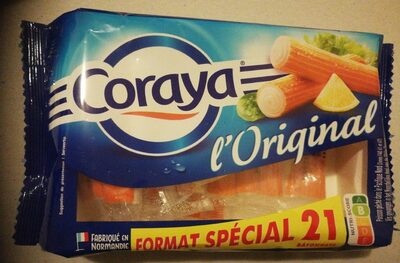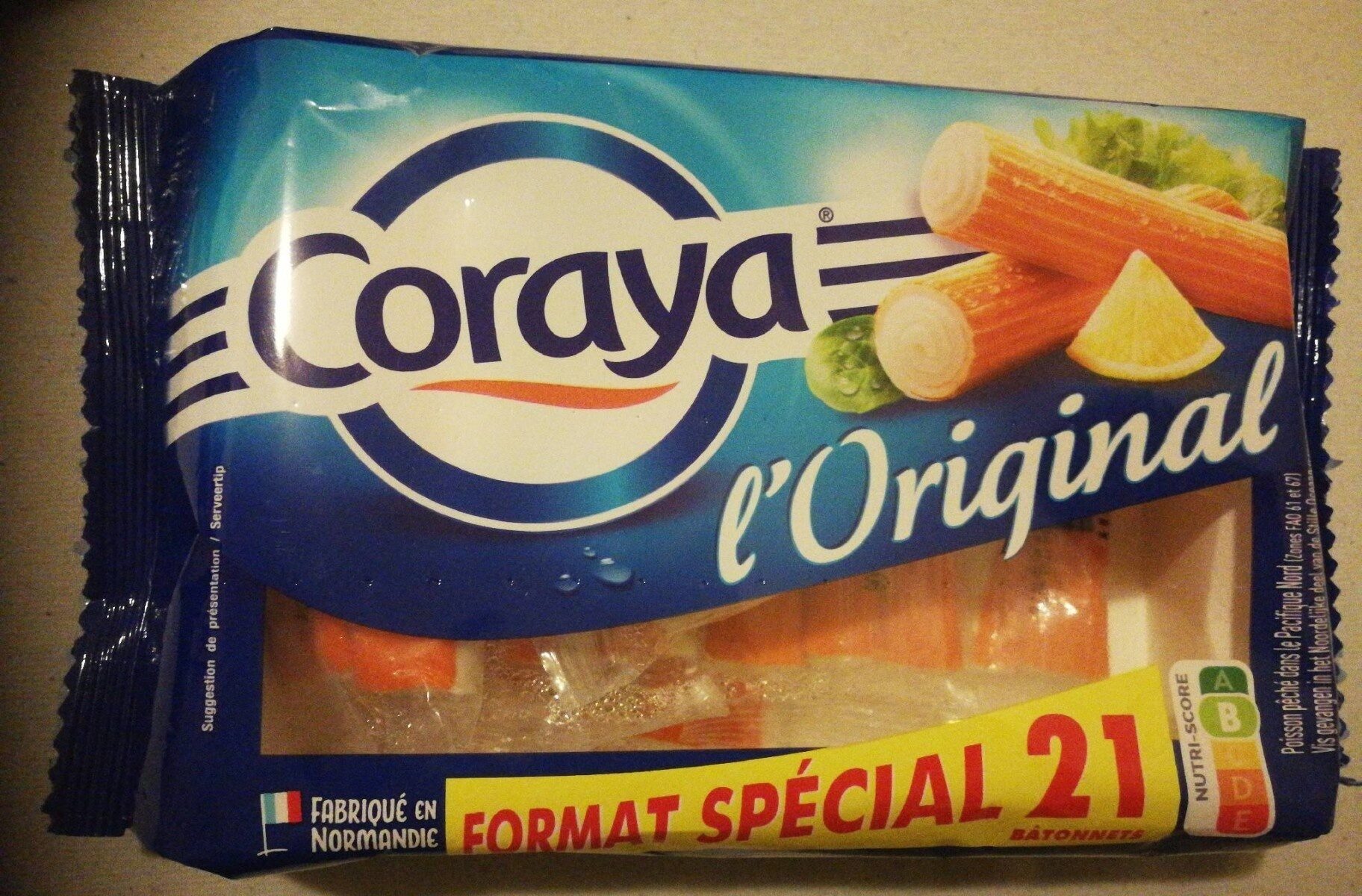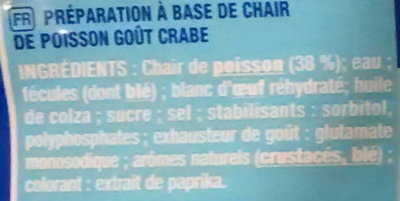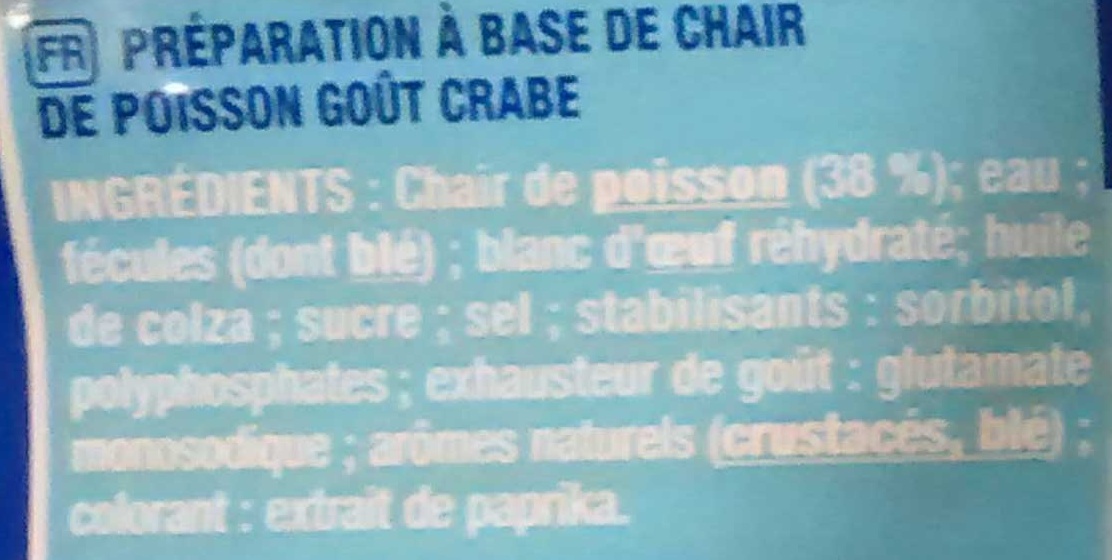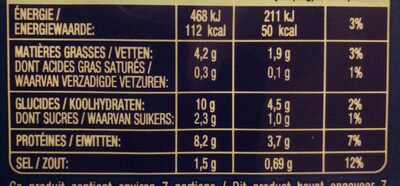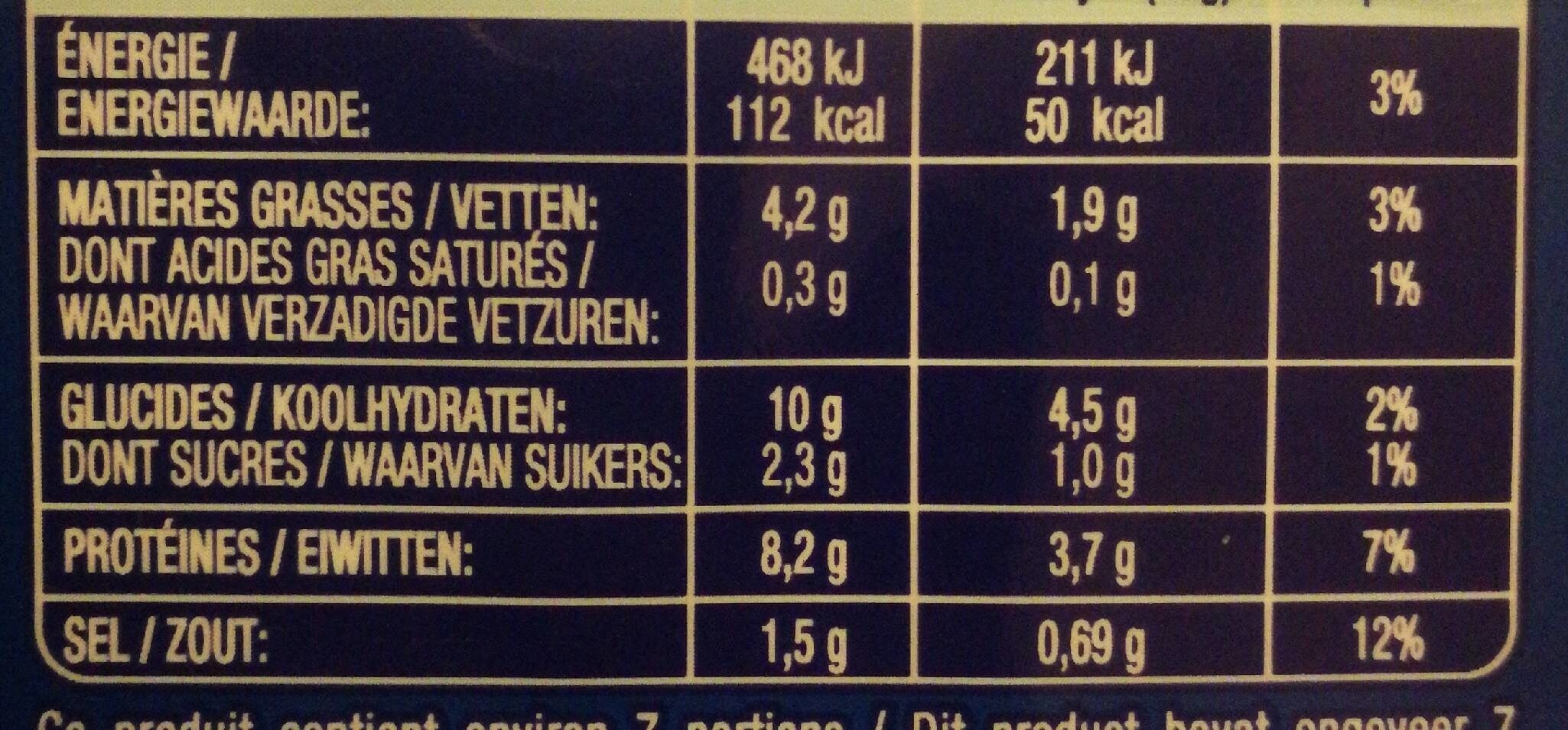L'original - Coraya - 315 g
This product page is not complete. You can help to complete it by editing it and adding more data from the photos we have, or by taking more photos using the app for Android or iPhone/iPad. Thank you!
×
Barcode: 3276170012632 (EAN / EAN-13)
Common name: Prépration à base de chair de poisson goût crabe
Quantity: 315 g
Packaging: Plastic, Film, Tray
Brands: Coraya
Categories: Seafood, Fishes and their products, Fishes, Fish preparations, Surimi, Preparations-made-from-fish-meat
Labels, certifications, awards: No artificial flavors, No preservatives, No colorings, Nutriscore
Countries where sold: France
Matching with your preferences
Environment
Carbon footprint
Packaging
Transportation
Report a problem
Data sources
Product added on by openfoodfacts-contributors
Last edit of product page on by packbot.
Product page also edited by date-limite-app, ecoscore-impact-estimator, kiliweb, meromene, quechoisir, roboto-app, segundo, tacite, tacite-mass-editor, yuka.KultLtiWH-YPFvbpya5l9xGHTcHKCc8IJkMWoQ, yuka.ZmFNakw3dy9xL1VHcWZFTThVL3gwZXRzeDQ2cEFqT1FFOWdLSVE9PQ, yuka.sY2b0xO6T85zoF3NwEKvlkYWAofHvRueEj7QyEKi1tiBf4K2eeB43rr5Gqo, yuka.sY2b0xO6T85zoF3NwEKvlkkXff_n8wvhKkTuwGbR-P6hcqazXvtAs9j8Lag.
